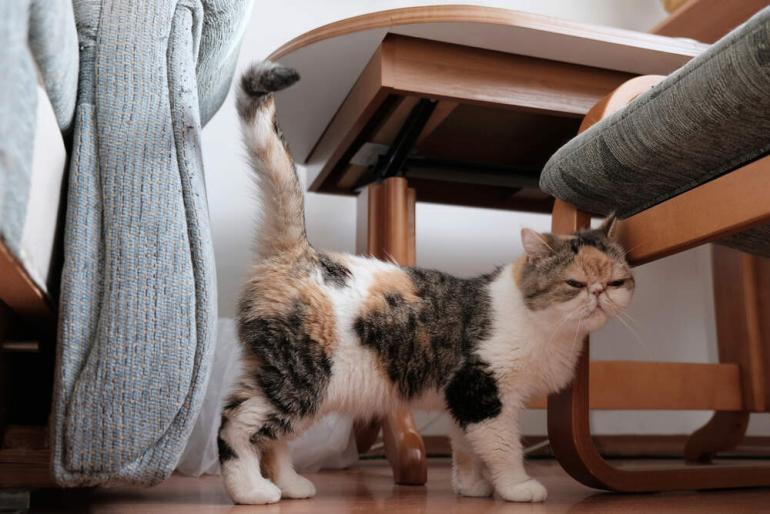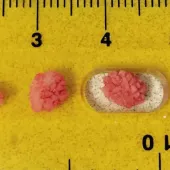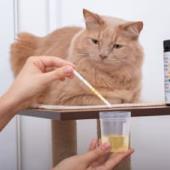Spraying - urine marking in the house
Cat spraying, often referred to as marking, is a natural behavior for felines. While it is a normal part of their communication repertoire, it can be problematic for pet owners when directed at inappropriate places. In this article, we will explore why cats spray, potential causes, and effective strategies to prevent and manage this behavior.
Spraying - urine marking in the house
Cats are very careful about going to the bathroom outside, and they rarely dirty or mark inside. It makes sense that you might be upset and not know what to do when your cat does this. It might help to solve the problem if you know why cats sometimes go to the bathroom inside. Most of the time, this is because the cat is scared or upset.
What is the difference between spraying and a cat's normal toilet habits?
Your cat marks its area with both urine and feces, which are its droppings. Other cats will see this and know your cat's gender, age, health, etc., and will be warned to stay away. Also, having the smell of its own familiar things around it can help it feel better. Cats don't squat when they are marking their territory with pee. A cat that sprays stands up, turns its back to the thing it wants to mark, and squirts a few drops of urine backwards. The tail is straight up, and the tip is likely to flick back and forth. Cats spray (mark their territory with pee) inside for very different reasons from cats that urinate inside, and it is important to tell them apart.
Will my cat spray?
All cats, male or female, neutered or un-neutered are likely to spray outdoors. Un-neutered animals are far more likely to spray. Having any cat neutered will reduce the risk of problems but spraying may still occur for emotional rather than sexual reasons.
Why has my cat stopped using its litter tray?
On some occasions a fully housetrained cat causes problems, not through spraying but because it has decided to use somewhere other than its litter tray to go to the toilet. This usually means that it is not happy using the litter tray. Cats are choosy where they relieve themselves and like somewhere clean and quiet. If the litter is dirty, the tray too close to the cat's feeding or sleeping area or in full view of the rest of the room your cat may refuse to use the tray. Sometimes you just need to put in a deeper layer of litter or change the brand used. This behaviour is quite different from spraying.
Can spraying be caused by a physical illness?
Indoor spraying occurs due to psychological disturbance in your cat. Your vet may want to check your cat for various conditions such as diabetes, kidney disease, bladder problems, etc which may cause it to urinate in the wrong place at the wrong time, but these diseases will not make your cat spray.
Will punishment solve the problem?
It is only natural to be annoyed when you find that your cat has soiled inside your home. But shouting at it or rubbing its nose in the mess will not stop it happening again. Your cat will not understand why you are upset. It is likely that your cat sprayed because it was frightened or insecure, so punishment will only make this worse.
Where will my cat spray?
Cats usually spray against a vertical surface at the entrance to the house or room - door frames are a favourite spot. They can mark anywhere such as pieces of furniture, curtains or household equipment. Sometimes cats will mark any unfamiliar object which has been brought into the home and occasionally even people may be sprayed!
How do I get rid of the smell?
Rub down the affected area with a damp cloth and then use a biological odour eliminator. Your vet will be able to recommend a suitable product. Standard disinfectants are not very useful. Some contain ammonia (a normal constituent of cat urine) and this will make your cat think that another cat has marked over its spot and may encourage it to re-spray the area. Unfortunately, the smell may persist for up to 4 weeks despite your best efforts at cleaning. Using a natural cat scent spray (pheromone) in the area may make your cat less likely to spray there again. These scents can be detected by cats but cannot be detected by people. When the area is clean move your cat's feeding bowl nearby as cats will not spray near their eating area. Make sure the food bowl is filled with dry food (not canned food which will go stale). Remember, unless the reason for spraying is removed your cat may simply start spraying elsewhere.
Reasons for Cat Spraying
-
Territorial Marking: Cats are territorial creatures by nature. Spraying allows them to establish and reinforce their territory, especially in multi-cat households or in areas where they perceive a threat.
-
Sexual Behavior: Unspayed or unneutered cats are more likely to spray, especially during the mating season.
-
Stress or Anxiety: Changes in the environment, such as moving, introducing new pets, or changes in routine, can cause anxiety and lead to spraying.
-
Medical Issues: Certain medical conditions like urinary tract infections, bladder stones, or other health problems can lead to inappropriate urination, which may be mistaken for spraying.
-
Inadequate Litter Box Conditions: Cats may resort to spraying if they find their litter box unclean, crowded, or in an inconvenient location.
-
Social Hierarchy: In multi-cat households, spraying can be a way for cats to establish or challenge their position in the social hierarchy.
Can the spraying be stopped?
Cats often spray, but if you can figure out why, you might be able to stop them. You and your vet may need to do a lot of research to figure this out. Maybe a new cat that is mean has moved in and makes your cat feel scared. Someone else's cat may have even come in through the cat door. An older cat might feel scared if you get a new kitten or dog or if there is a new baby in the house. Give your cat a small area all to itself from time to time. This can help it feel safe.
Sometimes it's best to close the cat flap and let your cat in and out by hand. This way, your cat will feel safe inside, where no one else can get in. The cat should have a safe place to sleep, poop, and drink water. Putting a pheromone (cat's natural smell) in places where it spends a lot of time may help it feel calmer. Watch it closely and let it out often to get food and extra love, even if you already give it a lot. Once the problem is under control, you can slowly let your cat back into the house, room by room.

Preventing and Managing Cat Spraying
-
Spaying or Neutering: This is one of the most effective ways to reduce spraying behavior, especially in intact cats.
-
Maintain a Clean Environment:
- Ensure litter boxes are cleaned regularly.
- Use unscented, clumping cat litter.
- Place litter boxes in quiet, accessible locations.
-
Address Stress and Anxiety:
- Provide a stable environment and maintain consistent routines.
- Offer hiding spots and vertical spaces for your cat to feel secure.
-
Multi-Cat Households:
- Provide separate resources (litter boxes, feeding areas, etc.) for each cat to minimize competition.
-
Consult a Veterinarian:
- If you suspect a medical issue, consult your vet for a thorough examination.
-
Behavioral Modification:
- Use positive reinforcement for appropriate elimination behavior.
- Consider consulting a professional animal behaviorist for guidance.
-
Use Pheromone Products:
- Feliway, a synthetic pheromone spray, can help create a calming environment and reduce stress-related behaviors.
-
Consult a Professional:
- If spraying persists or escalates, seek advice from a veterinarian or professional animal behaviorist.
Will medical treatment help to stop spraying?
Your vet may suggest drugs to help your cat deal with the stress that is making it spray. While these drugs might help for a short time, it is very important to figure out why your cat is unhappy in the first place. A pet behavior consultant, who is also known as an animal psychologist, may be able to help you if the problem is difficult or keeps happening. One will be able to get in touch with you through your vet.
Conclusion
Understanding the reasons behind cat spraying is crucial for effective prevention and management. By addressing the underlying causes and providing a supportive environment, you can help your cat feel secure and reduce the likelihood of this behavior. Remember, patience and consistency are key when dealing with spraying issues.





